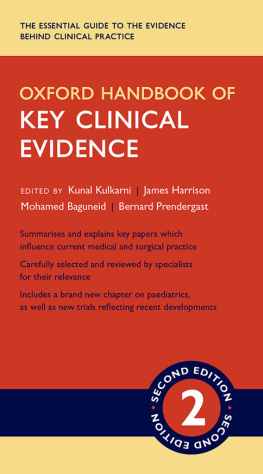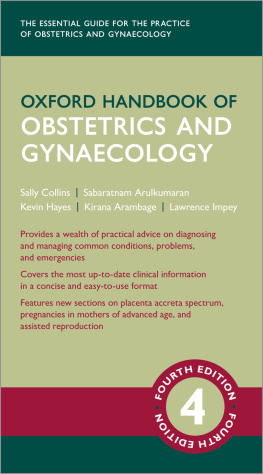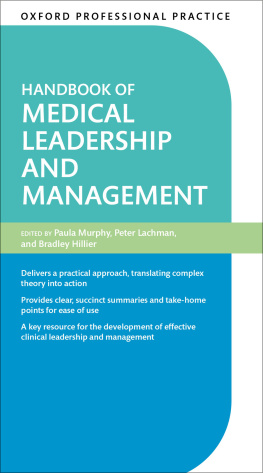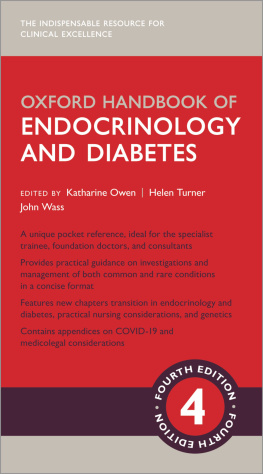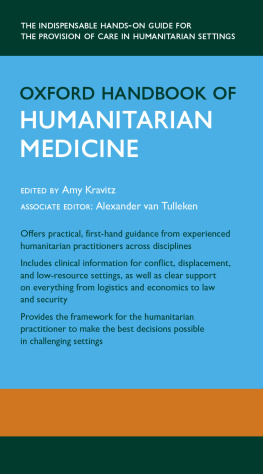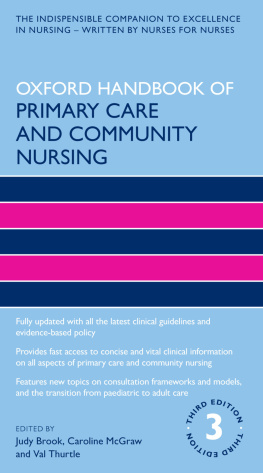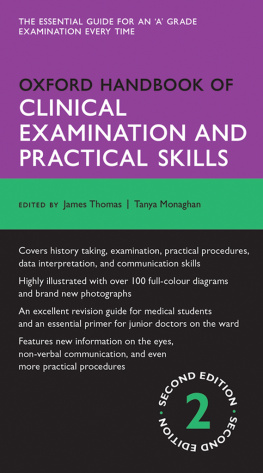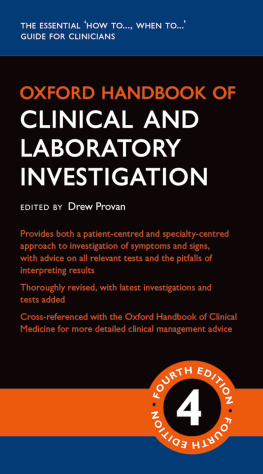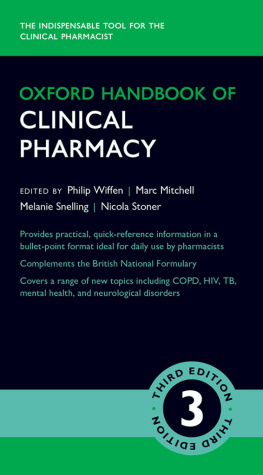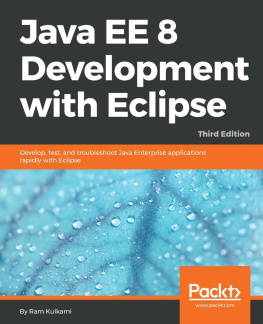Kulkarni Kunal - Oxford Handbook of Key Clinical Evidence
Here you can read online Kulkarni Kunal - Oxford Handbook of Key Clinical Evidence full text of the book (entire story) in english for free. Download pdf and epub, get meaning, cover and reviews about this ebook. year: 2016, publisher: Oxford University Press, genre: Romance novel. Description of the work, (preface) as well as reviews are available. Best literature library LitArk.com created for fans of good reading and offers a wide selection of genres:
Romance novel
Science fiction
Adventure
Detective
Science
History
Home and family
Prose
Art
Politics
Computer
Non-fiction
Religion
Business
Children
Humor
Choose a favorite category and find really read worthwhile books. Enjoy immersion in the world of imagination, feel the emotions of the characters or learn something new for yourself, make an fascinating discovery.
- Book:Oxford Handbook of Key Clinical Evidence
- Author:
- Publisher:Oxford University Press
- Genre:
- Year:2016
- Rating:3 / 5
- Favourites:Add to favourites
- Your mark:
- 60
- 1
- 2
- 3
- 4
- 5
Oxford Handbook of Key Clinical Evidence: summary, description and annotation
We offer to read an annotation, description, summary or preface (depends on what the author of the book "Oxford Handbook of Key Clinical Evidence" wrote himself). If you haven't found the necessary information about the book — write in the comments, we will try to find it.
Oxford Handbook of Key Clinical Evidence — read online for free the complete book (whole text) full work
Below is the text of the book, divided by pages. System saving the place of the last page read, allows you to conveniently read the book "Oxford Handbook of Key Clinical Evidence" online for free, without having to search again every time where you left off. Put a bookmark, and you can go to the page where you finished reading at any time.
Font size:
Interval:
Bookmark:

Absolute risk: The probability of an event in a population under study.
Confidence interval (CI): A measure of how precise the results are. A narrow confidence interval implies precision, a wide confidence interval, imprecision. A 95% CI is the range in which 95% of the true values lie.
Exposure: The factor suspected to alter disease risk.
Hazard ratio (HR): Probability of a hazard at time t in the treatment group vs time t in the control group. Sometimes referred to as the relative risk.
Likelihood ratio (LR): Estimate of how much a test result will change the odds of having a disease. For a positive result (LR+), it is how much the odds of the disease increase when a test is positive. For a negative result (LR), it is how much the odds of the disease decrease when a test is negative.
Negative predictive value (NPV): Proportion of people with a negative test who do not have the disorder.
Number needed to treat (NNT): Number of patients who need to be treated with the intervention in order to prevent one additional adverse outcome.
Odds ratio (OR): Ratio between the odds of disease in one group compared with another. Odds are used to approximate risk.
p value (p): Probability that observed difference is due to chance. Usually, p<0.05 is considered statistically significant.
Positive predictive value (PPV): Proportion of people with a positive test who actually have the disorder.
Relative risk (RR): Risk of an event in one group divided by the risk of the event in another (usually control) group.
Sensitivity: Proportion of people with a disorder that are correctly diagnosed as positive by the test.
Specificity: Proportion of people without the disorder that are correctly excluded as negative by the test.
(For a detailed examination of these terms see pp..)
| Levels of Evidence (modified version used in this book) | |
| Level | Type of evidence |
| 1a | Evidence from systematic reviews or meta analysis of randomized controlled trials |
| 1b | Evidence from at least one randomized controlled trial |
| 2a | Evidence from at least one controlled study without randomization |
| 2b | Evidence from at least one other type of quasi-experimental study |
| 3 | Evidence from non-experimental descriptive studies, such as comparative studies, correlation studies, and case control studies |
| 4 | Evidence from expert committee reports or opinions and/or clinical experience of respected authorities |
Oxford Handbook for the Foundation Programme 4e
Oxford Handbook of Acute Medicine 3e
Oxford Handbook of Anaesthesia 4e
Oxford Handbook of Applied Dental Sciences
Oxford Handbook of Cardiology 2e
Oxford Handbook of Clinical and Healthcare Research
Oxford Handbook of Clinical and Laboratory Investigation 3e
Oxford Handbook of Clinical Dentistry 6e
Oxford Handbook of Clinical Diagnosis 3e
Oxford Handbook of Clinical Examination and Practical Skills 2e
Oxford Handbook of Clinical Haematology 4e
Oxford Handbook of Clinical Immunology and Allergy 3e
Oxford Handbook of Clinical Medicine Mini Edition 9e
Oxford Handbook of Clinical Medicine 9e
Oxford Handbook of Clinical Pathology
Oxford Handbook of Clinical Pharmacy 2e
Oxford Handbook of Clinical Rehabilitation 2e
Oxford Handbook of Clinical Specialties 10e
Oxford Handbook of Clinical Surgery 4e
Oxford Handbook of Complementary Medicine
Oxford Handbook of Critical Care 3e
Oxford Handbook of Dental Patient Care
Oxford Handbook of Dialysis 4e
Oxford Handbook of Emergency Medicine 4e
Oxford Handbook of Endocrinology and Diabetes 3e
Oxford Handbook of ENT and Head and Neck Surgery 2e
Oxford Handbook of Epidemiology for Clinicians
Oxford Handbook of Expedition and Wilderness Medicine 2e
Oxford Handbook of Forensic Medicine
Oxford Handbook of Gastroenterology & Hepatology 2e
Oxford Handbook of General Practice 4e
Oxford Handbook of Genetics
Oxford Handbook of Genitourinary Medicine, HIV, and Sexual Health 2e
Oxford Handbook of Geriatric Medicine 2e
Oxford Handbook of Infectious Diseases and Microbiology
Oxford Handbook of Key Clinical Evidence 2e
Oxford Handbook of Medical Dermatology
Oxford Handbook of Medical Imaging
Oxford Handbook of Medical Sciences 2e
Oxford Handbook of Medical Statistics
Oxford Handbook of Neonatology
Oxford Handbook of Nephrology and Hypertension 2e
Oxford Handbook of Neurology 2e
Oxford Handbook of Nutrition and Dietetics 2e
Oxford Handbook of Obstetrics and Gynaecology 3e
Oxford Handbook of Occupational Health 2e
Oxford Handbook of Oncology 4e
Oxford Handbook of Ophthalmology 3e
Oxford Handbook of Oral and Maxillofacial Surgery
Oxford Handbook of Orthopaedics and Trauma
Oxford Handbook of Paediatrics 2e
Oxford Handbook of Pain Management
Oxford Handbook of Palliative Care 2e
Oxford Handbook of Practical Drug Therapy 2e
Oxford Handbook of Pre-Hospital Care
Oxford Handbook of Psychiatry 3e
Oxford Handbook of Public Health Practice 3e
Oxford Handbook of Reproductive Medicine & Family Planning 2e
Oxford Handbook of Respiratory Medicine 3e
Oxford Handbook of Rheumatology 3e
Oxford Handbook of Sport and Exercise Medicine 2e
Handbook of Surgical Consent
Oxford Handbook of Tropical Medicine 4e
Oxford Handbook of Urology 3e

Great Clarendon Street, Oxford, OX2 6DP, United Kingdom
Oxford University Press is a department of the University of Oxford. It furthers the Universitys objective of excellence in research, scholarship, and education by publishing worldwide. Oxford is a registered trade mark of Oxford University Press in the UK and in certain other countries
Oxford University Press 2016
The moral rights of the authors have been asserted
First Edition published 2009
Second Edition published 2016
Impression: 1
All rights reserved. No part of this publication may be reproduced, stored in a retrieval system, or transmitted, in any form or by any means, without the prior permission in writing of Oxford University Press, or as expressly permitted by law, by licence or under terms agreed with the appropriate reprographics rights organization. Enquiries concerning reproduction outside the scope of the above should be sent to the Rights Department, Oxford University Press, at the address above
You must not circulate this work in any other form and you must impose this same condition on any acquirer
Published in the United States of America by Oxford University Press
198 Madison Avenue, New York, NY 10016, United States of America
British Library Cataloguing in Publication Data
Data available
Library of Congress Control Number: 2015959996
ISBN 9780198729426
eISBN 9780191059292
Oxford University Press makes no representation, express or implied, that the drug dosages in this book are correct. Readers must therefore always check the product information and clinical procedures with the most up-to-date published product information and data sheets provided by the manufacturers and the most recent codes of conduct and safety regulations. The authors and the publishers do not accept responsibility or legal liability for any errors in the text or for the misuse or misapplication of material in this work. Except where otherwise stated, drug dosages and recommendations are for the non-pregnant adult who is not breast-feeding
Font size:
Interval:
Bookmark:
Similar books «Oxford Handbook of Key Clinical Evidence»
Look at similar books to Oxford Handbook of Key Clinical Evidence. We have selected literature similar in name and meaning in the hope of providing readers with more options to find new, interesting, not yet read works.
Discussion, reviews of the book Oxford Handbook of Key Clinical Evidence and just readers' own opinions. Leave your comments, write what you think about the work, its meaning or the main characters. Specify what exactly you liked and what you didn't like, and why you think so.

